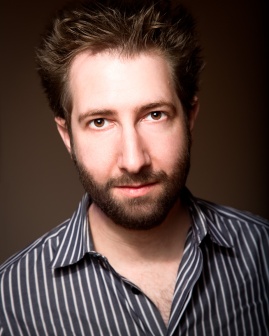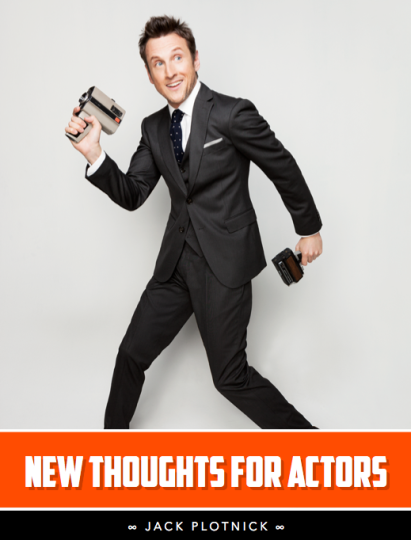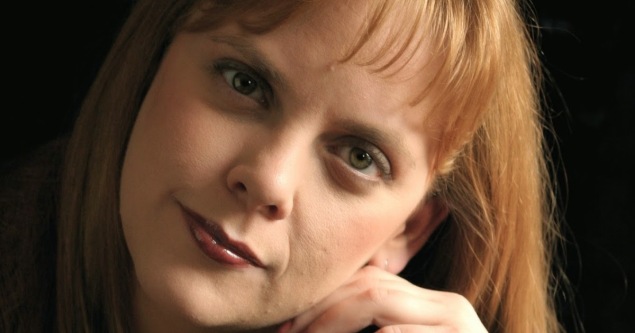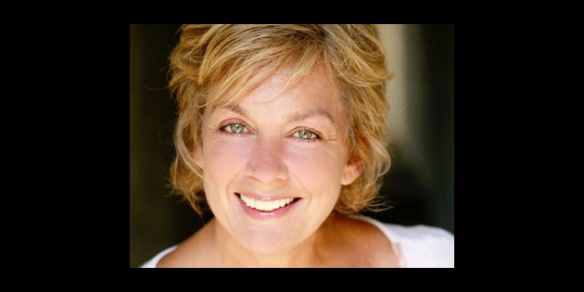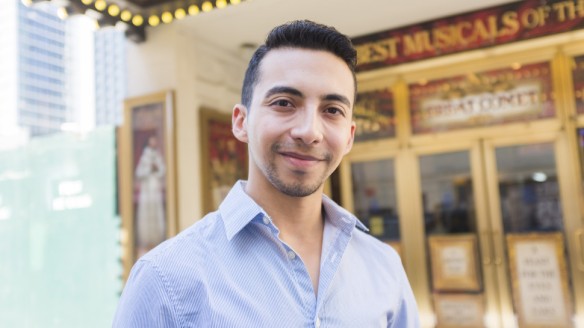 Andrew Mayer (Monica Simoes) via Playbill
Andrew Mayer (Monica Simoes) via Playbill
“There’s always a reason not to do something. So you can either listen to that, or get off your butt and work. Do things. How does somebody get better at something? You get better by doing it.”
BEHIND THE SCENES: ANDREW’S BACKGROUND & EARLY LIFE
When did you first know you wanted to be an actor?
“You know, that’s a toughie. Before I went to college I had my Equity Card. I did a few Off-Broadway professional shows as a kid. Something about connecting to other people and, as I eventually learned, the messiness of it, is what I like. I liked making people laugh and smile. There was nothing profound about it. I had a good energy as a child, and I liked singing, and I wasn’t shy. That translated to, ‘Let’s put him on the stage!’ Little by little, I became fascinated by stories and reading. I’m a big movie guy. I think it came from watching movies at a young age, and performing when I was really young.”
When did you start playing violin?
“When I was two years old, my grandparents gave me a toy violin, and I didn’t want to put it down. My parents recognized that and put me in pre-school Music Ed. When I was five, I started private lessons. I actually distanced myself from it when I went to college. I auditioned for both violin conservatories and acting conservatories simultaneously. It ended up being acting that I wanted to do. I went to Boston University, it was great.”
It seems like this show merges your skills perfectly.
“This show requires you to be simultaneously theatrical and large, at the same time very real and intimate. It’s cool.”
What advice would you give to your younger self, just starting out in the city?
“The first audition that comes to mind was during the summer of 2011. I went in for Merri Sugarman for JERSEY BOYS. She vocalized me, it went well. I was flipping out about that. Nothing came of it, but two and a half years later she randomly calls me in off of file to come in for Frankie. She still had my headshot from when I first got here. I didn’t get it again, but I learned that people actually do put you on file. I felt like there was a need for immediacy. People actually do think about you later on down the road. It’s important to be consistent about being present in the audition scene. That doesn’t mean go to every single call, but I think it’s important to be excited about auditioning. It can’t be a drag. It’s so hard already that you need to be excited about it, or you’ll burn out. Don’t throw away auditions. It’s important to be prepared and be professional. People do put on you on file.”
What is it like working with the creatives on this show? How has working with these people – Rachel Chavkin (director), Sam Pinkleton (choreographer) – changed you as an actor?
“I think it’s important to recognize that nobody has the answer, including the director and the choreographer. Everyone is figuring it out. The more positive impulses you can bring to a room, the more of an asset you will be. It’s an exploration, a navigation. We were building this show in a new way for a much larger space. The choreography changed even during previews, blocking changed. Because we’re all experimenting. The only way you can understand what you’re getting is if people are fully committed to the experiment. Not judging the process. What I like about Rachel and Sam – they like to work with impulse. They like to work off an actors’ impulse. It comes from us committing to it. Some of the numbers look almost like chaos, but it’s actually consistent chaos. If you come one night, and then again the next night, you’ll see something you didn’t see the night before. Playing with impulse, playing with what individuals can do came from this team effort. It was super collaborative. Some might label them geniuses, but we’re all looking for the answers – so we need to support that process and commit to it.”
How did you find out that you were cast in the show?
“I had been doing other auditions for other projects for a few months prior, and then all of a sudden I get a call to audition for this. They come last second, so I said, ‘Sure, I’ll go in.‘ I had three calls. After, I was in Texas for two days. It was my grandfather’s ninetieth birthday, and a bunch of my family was down there. The second day I’m there, everyone is nursing their hangover from the party the night before. At noon or one, I get a call from my agent. He says, “Hey Andrew, how would you like to make your Broadway debut at the Imperial Theater in The Great Comet on Broadway?” I hung up the phone and was trying to process what just happened. I didn’t expect to hear that fast, if at all. I move on, move to the next thing. So, I walked down the stairs and I said, “I just got cast in my first Broadway show.” My parents were there, my grandfather, my uncle, a bunch of my family. My mom starts screaming. They were all still nursing their hangovers but they had to bring out more alcohol to celebrate. Popped champagne. You have to understand, I hadn’t seen some of these people in fifteen years. I haven’t been down to Texas in ten years.”
That’s a lifelong memory for all you guys. You need to declare that day a holiday.
“The day after Memorial Day. They were like, ‘You need to come back to San Antonio all the time.‘”
What techniques/remedies do you use when under the weather?
“A lot of my castmates like oil of oregano. I like fire cider. It’s just apple cider vinegar. I’ll take a shot of that. I like to make sure I’m taking Vitamin C, B12, Zinc. I’m taking Immunocore, Fish Oil, B12, Zinc every morning. I’ve been healthy so far. People in the cast have been sick, but I’ve managed to avoid it.”
MOVIES EVERY ACTOR SHOULD SEE
“Batman, obviously. Star Wars. Honestly, some old black and white films – On the Waterfront, any of the Marlon Brando films. He is fantastic. A Streetcar Named Desire. There’s no frills. It’s really just performance. They didn’t have the technology yet. Basic camera movement. Being transported to another place by watching someone’s eyes.”
“YOU NEED TO BE DOING THINGS. YOU CAN’T BE THINKING ABOUT DOING THINGS.”
I think it’s easy to feel discouraged when it seems hard to break in and make a start for yourself. How have you created opportunities for yourself?
“You do it by creating. As facetious as it sounds, you need to be doing things. You can’t be thinking about doing things. Or sitting there on your butt in your room, annoyed that you haven’t done anything.”
HOW HIS SIDE GIG IN A WEDDING BAND & HAS HELPED HIM AS A PERFORMER
“For me, I was in a wedding band – the events allowed me to consistently perform in front of people I’d never met before, with no rehearsal. Just get up there and do it, and find a way to connect with them. I learned to not be afraid of that, to not be afraid of messing up. Now, when I walk into an audition room, it’s only one guy, not one hundred. People want you there. I only got better at that because I didn’t have time to prepare for some of this stuff. For this show [The Great Comet] , I didn’t get my sides until I was on the subway to the audition. I literally said, “Fuck it.” You have to be able to do that. Walk in the room, do it, mess up gloriously. They are looking for you, not for perfection. It’s not a test. I think that really is the number one thing. It seems like obvious advice, but to put it into practice is the difficult thing. I always telling the wedding band I’m super thankful. They’ve developed me as a performer as much as any conservatory program could, or more.”
ON OVERCOMING FEAR AND STEPPING INTO THE CREATIVE ARENA
“A lot of fear comes from not impressing, or messing up, or not being prepared. If you can do away with all that – it doesn’t matter when you mess up. Just start. I’m in the process right now of finishing an action short because I haven’t been doing much fight work. My roommate shot something in an apartment with another friend of mine. We shot a two minute fight in his apartment. Now, it’s material for the web and it’s something I got to do to keep my feet wet, keep my chops ready. You have to create in order to be fulfilled, I think. There’s always a reason not to do something. So you can either listen to that, or get off your butt and work. Do things. How does somebody get better at something? You get better by doing it.”
“That said, it’s important to know when to step back. Not overdoing it. There’s a balance to be found. But, don’t use the “not overdoing it” as an excuse for laziness. It’s a balance. Everyone says it like it’s so easy. I’m a terrible example of that. I’ve had ideas, and I’ve never gotten to them. But, I stay involved in other people’s projects. Don’t be a hero. You get better at what you do. The more you do something, the less frightening it becomes. No one expects you to be perfect. You’ll get it when you have time to prepare. It’s about being present, and not perfect.”
MESSING UP IN FRONT OF FRANK WILDHORN
“This reminds me of a story I have about a new Wildhorn project I auditioned for. I was told the night before, “Can you come in and prepare a Wildhorn song?” I didn’t know any of his work. I was like, “Ok, crap, let me try to learn something.” I’m trying to get the words under my belt, and they said, “Don’t worry, Frank Wildhorn is not going to be there.” I was like, “Ok, if I mess up words a little, it’s no big deal.” Of course, the next day I get to the audition room and they have the sheet typed up with who’s in the room. All these names, the director, who I was told would be there. Then, handwritten in scrawl is, “plus Frank Wildhorn.” The guy showed up. I was going to mess up the lyrics, possibly the melodies to his song. I was like, “You know what? This is a test.” It was a test of not being perfect in the face of someone who you think you have to be perfect for. I walked in the room and he was in there, front and center. Running the show. Dallas Cowboys hat on. Neutral, not unfriendly. I started the song, I did it, I messed up some of the lyrics, but stayed with it and figured out what I was doing, and moved through it. I got to the end, stayed present, and realized afterwards that I’d messed up the lyrics. Frank looks at me and he says, “That was fantastic. Great. That’s how that song is supposed to be sung.” Not a word about the missed lyrics. My advice to my younger self? Don’t worry about being perfect, worry about being present. Be prepared, be present, don’t be perfect.”
“PREPARE SO YOU CAN BE PRESENT.”
“That’s not an excuse for laziness or unpreparedness. Prepare so you can be present. The perfection aspect is an opinion, it’s totally subjective. This story was a clinic on that. The composer himself is sitting there when I screwed up his lyrics, but didn’t give a shit. Needless to say, I still didn’t get the project. I got called in three, four times, maybe made some good connections, I don’t know. The lasting impression though, is about being present and operating from that space rather than operating from a fear of imperfection.”
One thing I liked about college is that I got to perform a lot in the shows, but sometimes I think we only get better by performing, and the theory can be superfluous. What are your thoughts on studying the craft of acting?
“I like to break it down this way. You go to school, you read books, do classes, exercises, to learn about yourself, and to be able to connect with others. But really, what is Meisner, Stanislavski, Grotwoski, voice training for? These are all tools. You are building a toolkit. If you can unscrew it with your own hand, and you don’t need to reach for the toolbox, then don’t reach for the toolbox. The tools are all there, and they’re all very necessary and you will need to use them at certain points. If I don’t connect with a character, I use a tool to find out what I am doing. I use a tool to analyze text; to connect with my partner. But if I naturally connect with a piece and a character, I can fine-tune it with the tools, but I don’t want to fix what’s not broken. I think it’s very important to know how to use these things when you do need to use them. It’s also important to not overdo it. Allow yourself to be free and present with your own instrument, and use tools when your hand is not enough to unscrew the bolt.”
ON THE DISCIPLINE OF PRACTICING & DEVELOPING A NEW SKILL
“They say it takes 10,000 hours to master something (Outliers, Malcolm Gladwell). I believe that. There’s something to be said for hard work. Deliberate practice over and over, everyday. At some points I’ve had a lot of projects going on where my mind needs to be in many different gears at once. It’s hard to stay present in each of those places. I’ve learned it’s far better to do twenty minutes of focused practice than it is to do two hours of unfocused practice. So if I’ve only got twenty minutes, that’s fine actually. You can get as much done in that span of time as you can get in six hours of crappy work. With any skill, it’s not about the amount of time, it’s about the quality of the time. Dance, coordination, instruments, whatever it may be. If it’s only twenty minutes, give those the true mental worth. Don’t force yourself to practice for two hours if your’e just gonna sit there with your thumb up your ass.”

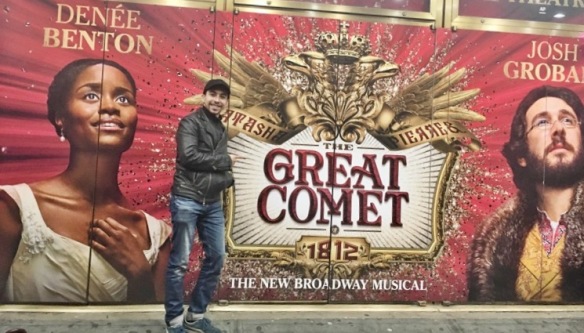
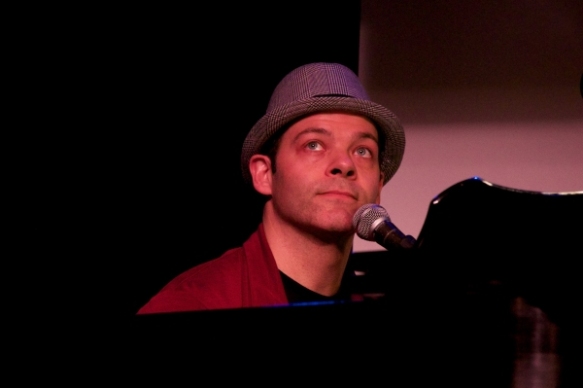
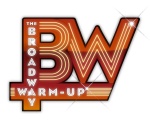
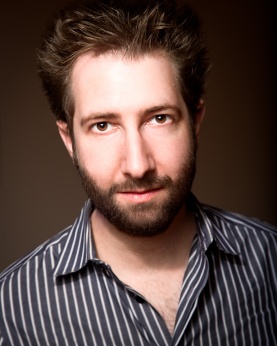 In Part II, we discuss:
In Part II, we discuss: